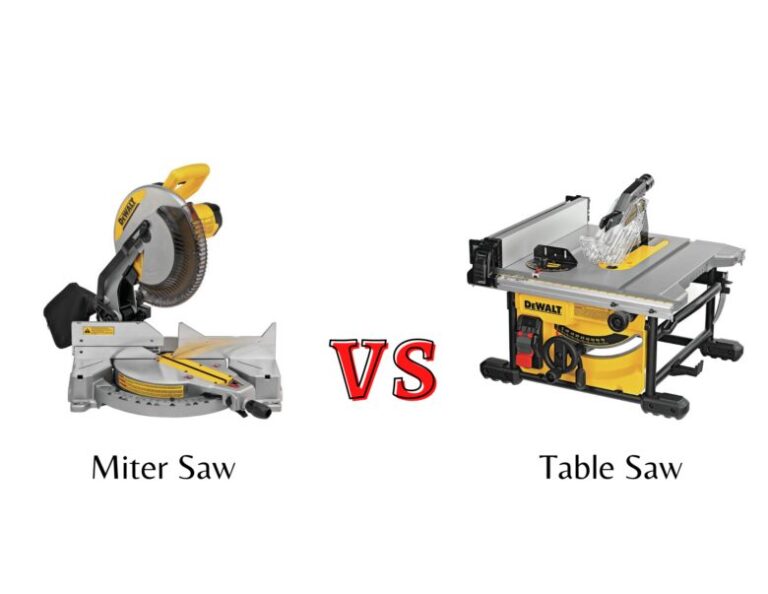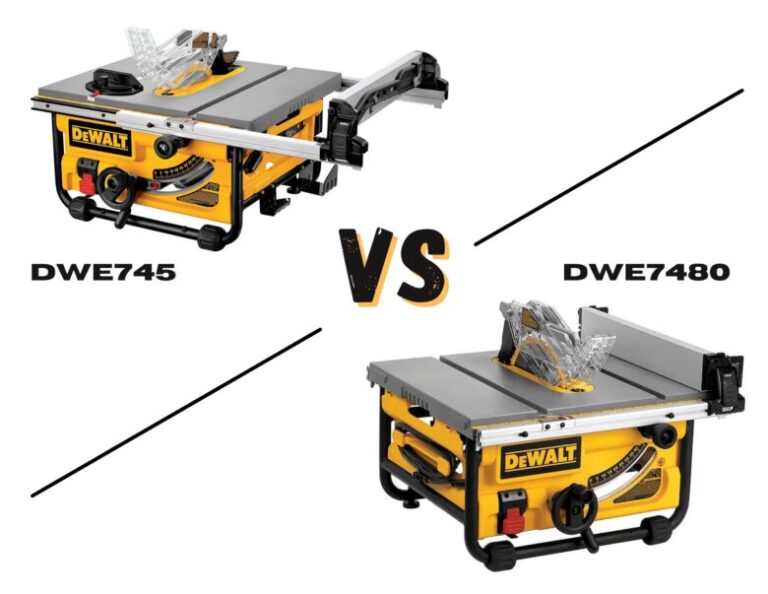Any DIY woodworking project requires quality tools and sufficient know-how in the modern era. Of course, when it comes to woodworking tools, nothing can beat a table saw, or circular saw that both come with their positives and negatives. This brings us the question – which one to choose?
Well, we understand that picking the right one can often present itself as a dilemma, so we did a bit of research and found some interesting pieces of information regarding these two powerful saws. They both have useful features, but before spending the money on either of them, you must consider their intended use and the demands of the project. We will try to help you figure this out in today’s article, so, without further redo, let us get into it.
What Is a Table Saw?
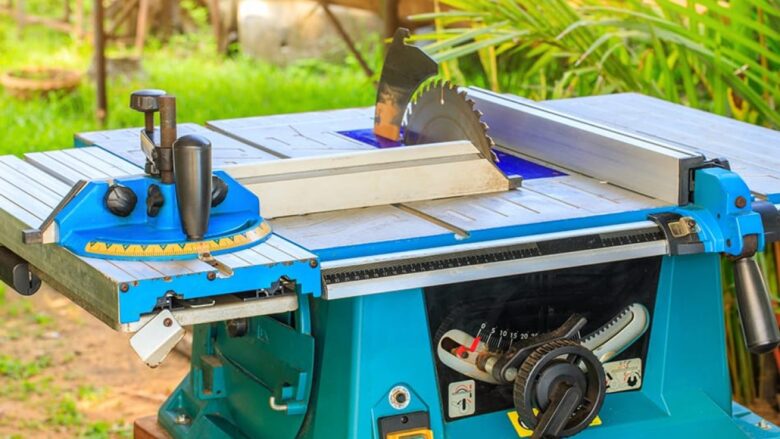
A table saw is a powerful woodworking tool with a circular blade that is positioned up through the hole in the work surface of the table. The best use for this type of saw is for cutting accurately in straight lines, and their design is not for cutting curves.
Operating this tool is pretty straightforward, and you do this by placing the wood for cutting on a working surface, and with the help of a guide, you slowly push the piece of the wood onto the blade. It is an effective saw that slices precisely and accurately.
In the modern era, these saws allow you to adjust the height and the angle of your cut, which is pretty convenient since it adds lots of flexibility and versatility over the type of cuts you intend to make. This saw also features a range of built-in rails that help you guide it for perfectly straight lines across longer distances. Precision and power are what table saws are all about.
For What Projects Is a Table Saw Best?
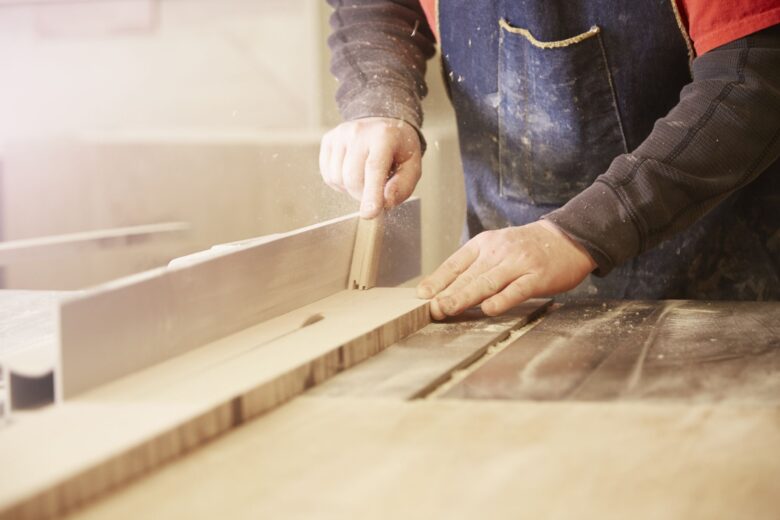
Since table size is a perfect surface for cutting large pieces of wood, it will allow you to make straight cuts over longer distances. The blade and the rails are highly adjustable, so any woodworking project that requires a change of cutting angles and accurate cuts is best done with this type of saw.
Considering the fact that you push the wood into the blade, it is very comfortable to use and is an excellent choice if you are required to cut multiple pieces of wood at a time. It also finds various uses in industry, and it is often enough a go-to tool.
What Are the Downsides of a Table Saw?
Although very useful and powerful, a table saw is not a perfect product, and it does come with certain downsides. For one, it is generally pretty expensive, so if you are working with a lower budget, it might be difficult to afford it.
Since it is large and heavy, one would know that portability is not one of the table saw’s stronger suits. Due to this, you will have to bring all the wood to the machine and cut from the same spot over and over.
Another thing that you should consider before purchasing this tool is that it is very difficult to clean. The sawdust often gets trapped in the table, and it is often hard to reach it and clean it properly.
What Is a Circular Saw?

The circular saw is a handheld power tool that is powered either by plugging it into an electrical socket or rechargeable batteries. This saw uses a large blade that is generally seven and ¼ inches long and is attached to a strong rotary motor.
A rotary motor spins the blade and provides the speed and torque that is excellent for cutting lumber and other similar materials. The way the saw works is that you have to line it up with your guideline and press the trigger to set the blade in the working state.
There are also guards placed so that you do not injure yourself, and they provide excellent protection. Typically, these saws have an automatic brake that will stop the blade immediately whenever you let go of the trigger.
For What Projects Is a Circular Saw Best?
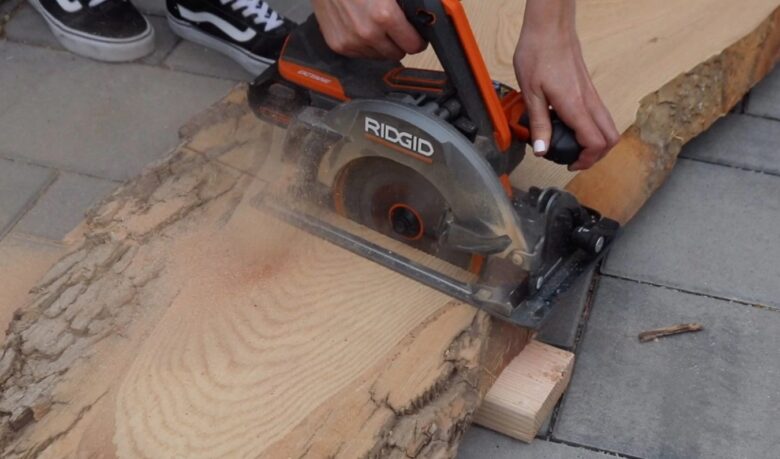
The circular saw is one of the most practical and useful tools you will find in any respectable workshop. Its main uses are for cutting small pieces of wood like a 2×4 or plywood. You can also cut larger lumber once you get the hang of handling the saw and gain more experience in using it.
This saw is lightweight, thus, very portable, and suitable for almost all of your cutting jobs within a household. Keep in mind that it is also useful in industrial work projects, so do not shy away from purchasing it if the job requires you to cut smaller pieces of lumber.
Circular saws can even cut the wood at an angle lengthwise, and when you consider the price, they are much cheaper than table saws. Mobile and versatile, these saws are very popular on job sites and with other woodworking professionals that need to move around a lot in their workspace.
What Are the Downsides of a Circular Saw?
One of the main downsides to the circular saw is the fact that it is not great for cutting larger pieces of wood because you are required to push it with your hand. Human error is something that comes naturally and is difficult to avoid, and it is something that will result in deviances, so they are not reliable as a table saw in that aspect.
Another notable drawback is the physical effort you have to put in when using a circular saw. You will have to stretch your body to cut larger boards, and this is something that can quickly cause fatigue and even more deviances in a straight line, which is a thing that no woodworker wants.
Table Saw vs. Circular Saw – Saw Blades
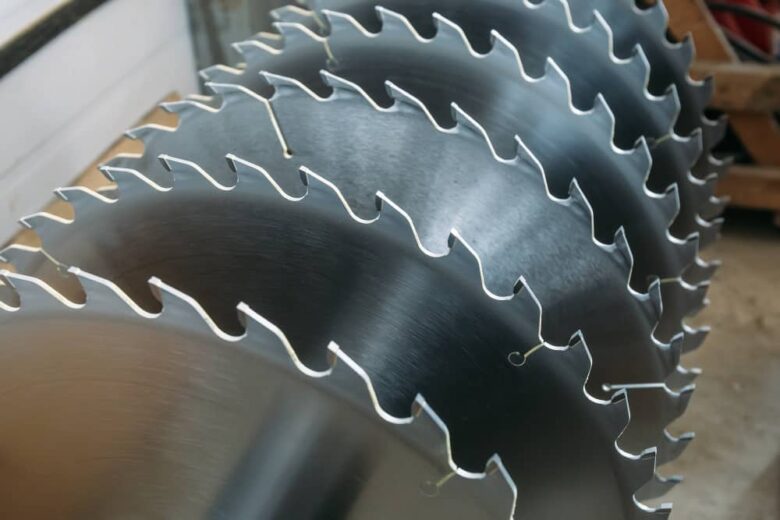
Let us start with a more portable product, a circular saw. It has smaller blades compared to table one, but they are pretty similar in the way they work and look. Both varieties are very useful and come in different versions, which is pretty great since you can pick your poison depending on the job you are about to do.
The shape and the number of teeth also play a large role in this comparison since they can provide a huge impact on the blade’s ability to slice certain materials. This is the reason why multiple workshop owners tend to have several blades on hand for more versatility.
Table saws have a much larger number of teeth on their blades, making them more useful for work projects that require you to slice larger pieces of wood. However, their portability is often a drawback for smaller projects in which a circular saw should be a go-to tool.
Battery Power Versus Electric Power
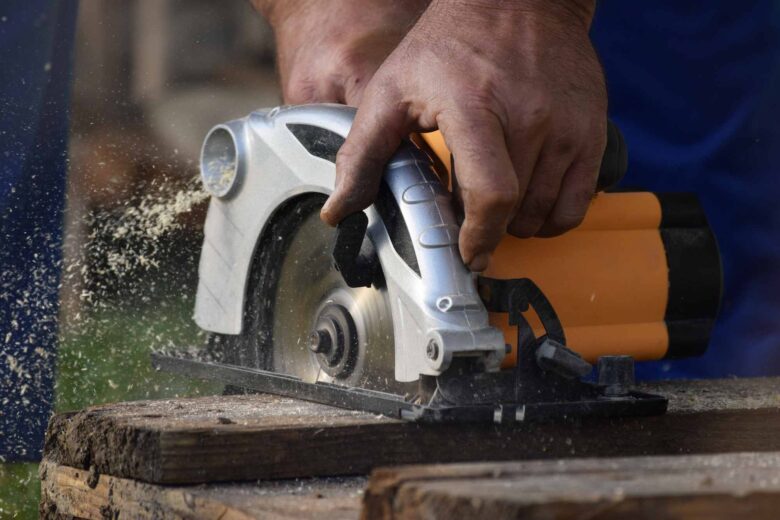
Now, this is the aspect that can make or break the argument about these two saws. It is unlikely that you will ever find battery-powered table saws, but recent progression in lithium technology promises that we might get more accessible battery-powered tools for a lower cost.
However, for now, table saws are mostly available in electric-powered varieties and remain a tool that is not very portable. Battery-powered circular saws are excellent additions to workshops in which the job requires workers to move around a lot.
Bear in mind that these batteries are not cheap either and can cost up to 100 dollars, which is no expense to overlook. The most important thing to remember when picking between circular and table saw in terms of power options is the intended purpose you have for them and the type of project you are about to engage in.
Table Saw vs. Circular Saw – Summarized Pros and Cons
You should note that there is no “best” option when it comes to these tools since they both come with positives and negatives. In the section below, we will list some of the most important pluses and minuses that both saws bring to the table.
Advantages of a Table Saw
- Precise and accurate cuts – The stability of the work surface and saw’s design are unparalleled when it comes to stability and accuracy.
- Ripping boards and cross cuts are done effortlessly – Since these are common jobs for woodworkers, it is very convenient that you can perform them easily, even if you are a beginner.
- Efficient sawdust disposal – When working on a table saw, you do not have to deal with piles of dust since they go directly into the dust compartment.
- Very easy to maintain – Although these saws occupy more space than circular ones, they are stationary, which makes the maintenance part much easier. You can access all the parts of the saw without spending too much energy.
Disadvantages of a Table Saw
- Not portable – Due to their big size and fixed location in your workspace, they must remain at the same spot all the time. This does not just refer to portability but to the space you need to free up just to store it.
- The price – Table saws are much more expensive than their hand-held counterparts due to the materials required in their manufacturing process. If your budget is tight, they are not a great solution.
- Dangerous to use for beginners – Since the blade of this saw is always exposed, it might be very dangerous for a beginner to handle it.
Advantages of a Circular Saw
- Versatility – Even though a table saw is much more precise; circular variety offers higher levels of versatility. What this means is that you will be able to perform different types of cuts and cut through different materials.
- Portability – This is one of the main advantages of this power tool. It is suitable for all woodworkers that are required to go from one project to another and carry their tools with them. Circular saws are much more mobile and lightweight, and you can also pick the battery-powered variety, which grants even more mobility.
- The price – These saws are pretty cheap, so they are a go-to tool for workers that do not want to break the bank.
Disadvantages of a Circular Saw
- Not very precise cuts – Due to a human error factor and hand-held handling, these saws are not very practical when your job requires a more precise cut. A fixed blade that a table saw provides is much better in this line of work.
- No sawdust disposal – Whenever you work on a project that requires you to do more than just one cut, it is almost certain that there will be lots of dust piling up around your workspace. Since circular saws do not feature a sawdust disposal compartment, you will have to spend a lot of time cleaning and waste your time.
Table Saw vs. Circular Saw – Which One to Pick?
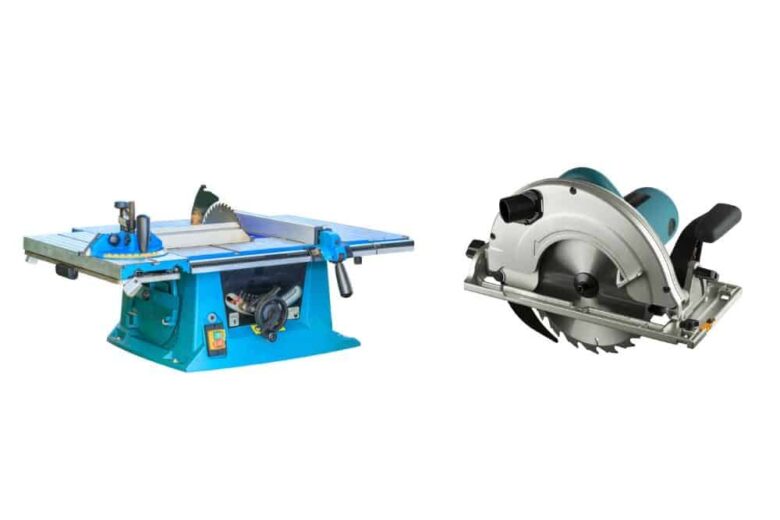
By now, you should get a clearer picture of which saw is right for your line of work. There is no wrong choice since both of these varieties are highly effective in certain projects and jobs. If you have the necessary budget but want to choose only one of them, the intended purpose is what you need to have in mind at all times.
A circular saw is the one to go for in case you need the tool that1 will allow you the greatest range of cuts for different jobs. Its portability and versatility make it a superb choice for all workers that need to remain mobile during their jobs.
On the other hand, if you are a woodworker who puts extreme precision and power in the first place, then a table saw is a tool to go for.
Final Words
This concludes our comparison article. The best way to make a choice between these two saws is to weigh advantages and disadvantages and figure out the purpose and the type of job you are planning to put them in use.
We hope our article will help you reach a better understanding of what each of these tools can do. If you are still uncertain, make sure to seek second opinions and customer reviews of both of these products, and by you are done with it, you will surely find the one that will serve your purposes best.


